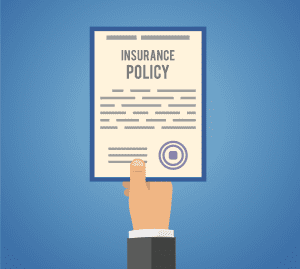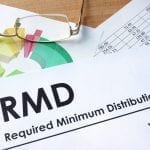Money Matters
presented by: Vision Financial

You’re ready to buy an insurance policy, but you feel a bit uneasy embarking into the insurance world. Whether you’re buying an auto policy, a homeowners policy, a life insurance policy, or some other type of policy, here are some general tips to help you tread the insurance waters.
Comparison shop. Perhaps the single most important thing you can do when buying insurance is to shop around. You don’t want to rely on a quote from just one company. Compare the policies and prices of several different insurance companies. Try to compare policies that offer identical benefits.
Don’t buy features you don’t need. If you discover policies that offer slightly different features, make sure you understand what these features are and whether you need them. Don’t buy any benefits you don’t need–additional benefits can increase the cost of your policy. If you need help, ask your insurance agent.
Don’t automatically settle for the cheapest policy. It’s easy to select the cheapest policy. But unless such a policy offers the same benefits as a more expensive policy, think twice. You get what you pay for. And even if the benefits are the same, you’ll want to examine other factors, like the company’s customer service record or claims-paying ability.
Know the company’s financial-strength rating. All insurance companies are rated by the major rating agencies: Standard & Poor’s, Moody’s, A. M. Best, Fitch, and Weiss. This rating reflects the company’s ability to meet its obligations (pay its claims) under its insurance contracts. Though such a rating doesn’t guarantee a company’s future financial strength, it’s a good yardstick to measure a company’s current financial security. These ratings can usually be found in public libraries or on the Internet.
Understand a policy before you sign it. An insurance policy is a legal contract that can be full of legal jargon and technical terms. Before you sign on the dotted line, make sure you understand the details of each policy provision and the coverage you’re buying. You’ll want to be able to answer the following questions:
- Who or what is protected?
- When does coverage begin?
- How much coverage is provided?
- How should a loss be reported?
- What happens if there’s a disagreement over whether coverage exists for a particular loss or event?
- What isn’t covered (exclusions and limitations)?
For additional help, contact your insurance agent and ask him or her to walk you through the document.

 -S. Joey Elmore
-S. Joey Elmore
Vision Financial Group, Inc.
4505 Pine Tree Circle, Ste 101
Birmingham, AL 35243
205.970.4909
Investment advisory services offered through Investment Advisors, a division of ProEquities, Inc., a Registered Investment Advisor. Securities offered through ProEquities Inc., a registered broker-dealer and member of FINRA and SIPC. Vision Financial Group, Inc. and West Alabama Bank are independent of ProEquities, Inc. Securities and insurance products offered are not bank deposits, have no bank guarantee, are not FDIC insured, and may lose value.







